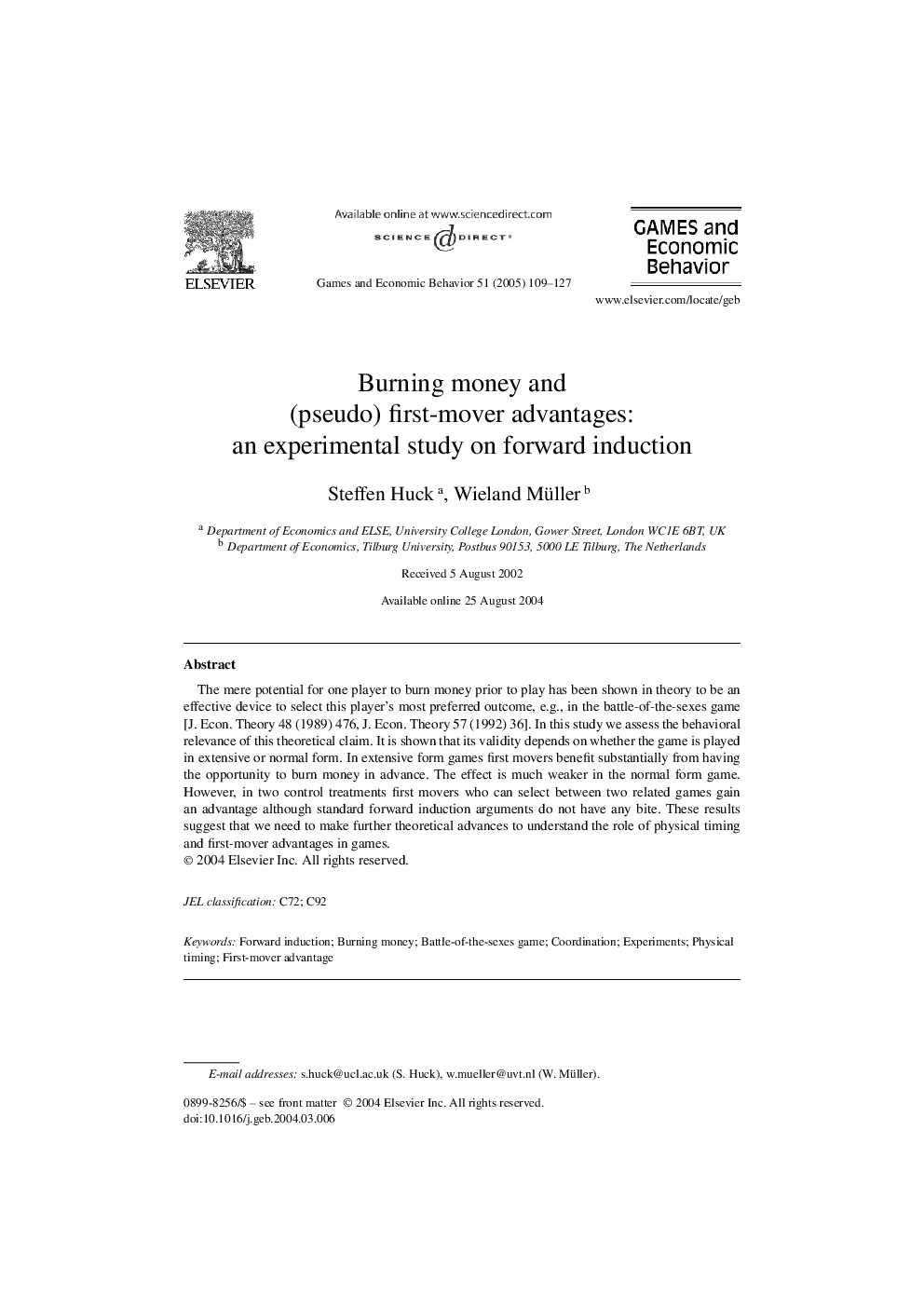| Article ID | Journal | Published Year | Pages | File Type |
|---|---|---|---|---|
| 9551764 | Games and Economic Behavior | 2005 | 19 Pages |
Abstract
The mere potential for one player to burn money prior to play has been shown in theory to be an effective device to select this player's most preferred outcome, e.g., in the battle-of-the-sexes game [J. Econ. Theory 48 (1989) 476, J. Econ. Theory 57 (1992) 36]. In this study we assess the behavioral relevance of this theoretical claim. It is shown that its validity depends on whether the game is played in extensive or normal form. In extensive form games first movers benefit substantially from having the opportunity to burn money in advance. The effect is much weaker in the normal form game. However, in two control treatments first movers who can select between two related games gain an advantage although standard forward induction arguments do not have any bite. These results suggest that we need to make further theoretical advances to understand the role of physical timing and first-mover advantages in games.
Related Topics
Social Sciences and Humanities
Economics, Econometrics and Finance
Economics and Econometrics
Authors
Steffen Huck, Wieland Müller,
